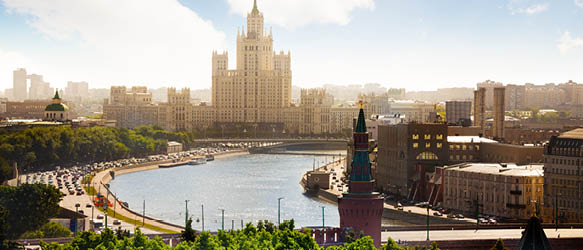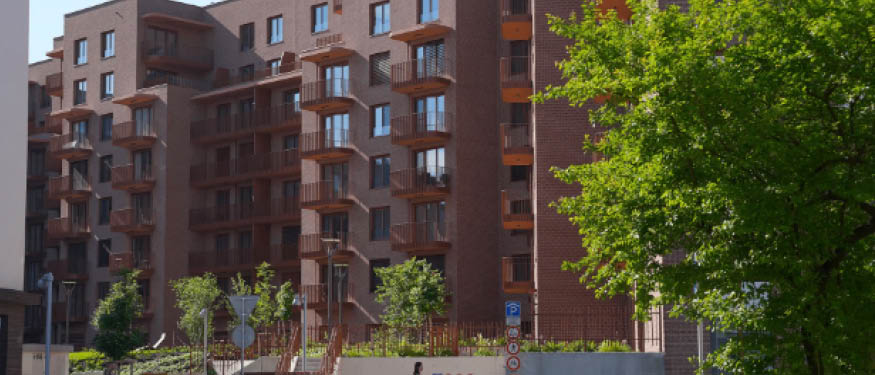On 1 April 2020, Federal Laws No. 98-FZ, 99-FZ and 100-FZ came into force in connection with the spread of COVID-19, the disease caused by the coronavirus.
In particular, these laws do the following:
• toughen administrative and criminal liability for violation of sanitary and epidemiological rules;
• provide the Russian government with additional powers to introduce a high-alert regime and state of emergency;
• regulate the introduction of a moratorium on bankruptcy proceedings;
• introduce rules for deferring and reviewing rental payments;
• allow state and municipal procurement without observing the established competitive procedures in specific cases; and
• provide the Russian government with the right to establish special rules for the registration and circulation of medicines and medical devices to prevent the spread of dangerous diseases.
Strengthening administrative and criminal liability for violation of sanitary and epidemiological rules
Administrative liability
The amendments provide administrative liability for:
• violation of sanitary and epidemiological rules or failure to comply with anti-epidemic measures during emergencies in the event of the threat of the spread of a dangerous disease or when a quarantine has been introduced within a specific territory; or
• failure to comply with legal requests or instructions of an authorised body regarding anti-epidemic measures (e.g. a quarantine order issued to a person who has returned from abroad).
These violations will be punished by a fine in the following amounts:
• up to RUB 40,000 (EUR 470) for individuals;
• up to RUB 150,000 (EUR 1,750) for company officials;
• up to RUB 150,000 (EUR 1,750) for individual entrepreneurs;
• up to RUB 500,000 (EUR 5,830) for legal entities.
As an alternative to fines, the business activity of individual entrepreneurs and legal entities may be suspended for up to 90 days.
If the violation resulted in injuries or the death of a person (provided that such violation is not a criminal offence), the maximum fine would be RUB 300,000 (EUR 3,500) for individuals and RUB 1 million (EUR 11,660) for individual entrepreneurs and legal entities. In this case, administrative suspension of operations for up to 90 days can also be applied as an alternative sanction to individual entrepreneurs and legal entities. As for company officials, they can be fined up to or RUB 500,000 (EUR 5,830) or disqualified from holding certain positions for up to three years.
Moreover, administrative liability is introduced for non-compliance with rules applicable during the state of emergency or high-alert regime (except for the breach of sanitary and epidemiological rules described above). This liability consists of:
• for individuals – a fine up to RUB 30,000 (EUR 350);
• for company officials – a fine up to RUB 50,000 (EUR 583);
• for individual entrepreneurs – a fine up to RUB 50,000 (EUR 583);
• for legal entities – a fine up to RUB 300,000 (EUR 3,500).
Currently, a high-alert regime has been introduced and rules on self-isolation have been established in Moscow and many regions of Russia.
Criminal liability
Criminal liability for violations of sanitary and epidemiological rules has also been strengthened.
Criminal liability for violation of sanitary and epidemiological rules, which causes mass disease among people through negligence or creates the threat of mass disease can result in one of the following penalties being imposed:
• a fine up to RUB 700,000 (EUR 8,165) or the equivalent in salary for up to eighteen months;
• disqualification from holding certain positions for up to three years;
• restriction of freedom for up to two years;
• compulsory labour for up to two years; or
• imprisonment for up to two years.
If the violation caused a person’s death by negligence, the following sanctions can be imposed:
• a fine up to RUB 2 million (EUR 23,330) or in the amount of salary for up to three years; or
• restriction of freedom for up to four years; or
• compulsory labour for up to five years; or
• imprisonment for up to five years.
If a violation caused the death of two or more people by negligence, the sanctions are:
• compulsory labour for up to five years; or
• imprisonment for up to seven years.
Prior to these amendments, criminal liability was provided only in cases where the violation led to mass illness or death of a person. According to the new rules, creating a threat of mass illness can already be qualified as a criminal offence.
To date, there are already examples of criminal cases initiated for violations of the quarantine.
Taking into account the amendments, we recommend that any and all measures initiated by the authorities regarding the quarantine and self-isolation of persons be strictly observed.
New powers of the government on introducing the high-alert regime and state of emergency
The government will be able to introduce high-alert and state of emergency regimes throughout Russia or in specific regions. Also, the government will be able to introduce obligatory rules of conduct during these regimes.
In the past, only the President could introduce such regimes.
Moratorium on the initiation of bankruptcy proceedings
Federal Law No. 98-FZ introduces new provisions to the Federal Law “On Bankruptcy” which entitle the Russian government to impose a moratorium on the initiation of bankruptcy proceedings “to ensure stability in the economy in exceptional cases (i.e. natural and technogenic emergencies, significant changes in the rouble exchange rate and other similar circumstances)”.
The government is to determine the duration of this moratorium and the sectors (or specific categories of persons or list of persons) to which it applies.
When the moratorium is imposed, the courts will have to return applications for declaring a debtor bankrupt to their creditors. The applications submitted before the moratorium, but not yet accepted by the court, are also subject to return. Debtors who are subject to the moratorium are also exempt from the obligation to file for their own bankruptcy.
A number of restrictions are imposed on these debtors, and the most significant ones include the following:
• Participants or shareholders are not allowed to withdraw from the company, and the debtor is not allowed to buy out the placed shares or participatory interests.
• It is not permitted to terminate the debtor’s obligations by set-off if it disrupts the priority of creditors’ claims.
• It is not permitted to pay dividends or to make distributions on participatory interests, and to distribute profits between the debtor’s participants.
• Penalties and other financial sanctions for the non-performance of monetary obligations and mandatory payments do not accrue.
• Enforcement over pledged assets is not allowed, whether through court or out-of-court procedures.
• Enforcement proceedings on pecuniary sanctions for claims that arose before the introduction of the moratorium are suspended (but seizure of the debtor’s property and other restrictions on the disposal of the debtor’s property remain in force).
The amendment also provides for an extremely strict measure aimed at preventing stripping companies falling under the moratorium of their assets.
If a bankruptcy case is still initiated against a company within three months after the end of the moratorium, all its transactions related to the transfer of property and the acceptance of obligations made during the moratorium period will be considered null and void. This measure does not apply to transactions made in the ordinary course of business if the price of the property transferred under this transaction does not exceed 1% of the value of the company’s assets.
The moratorium is expected to contribute to maintaining financial stability for companies most affected by the crisis. On the other hand, the moratorium significantly restricts the rights of these companies and their participants. Those who conclude agreements with companies subject to the moratorium should closely review the terms of their transactions to minimise the risk that these transactions will be recognised as null and void.
Real estate rental payments in 2020
The provisions of Law No. 98-FZ also apply to the regulation of rental relations in 2020 and the possibility of reducing rents when it is impossible for tenants to use the leased property.
The Law provides for the following:
• the possibility of deferring rent payment in 2020 in relation to real estate lease agreements concluded before the adoption of a decision on the introduction of a high-alert regime or state of emergency in 2020; and
• the tenant’s right to demand a reduction in rent for 2020 due to the inability to use the property. Moreover, according to the Law, the Russian government will establish the requirements for the conditions and duration of such a deferment.
These new provisions generally comply with the requirements of current legislation regarding force majeure and a decrease in rents if conditions have worsened for using the property. At the same time, they give certainty regarding the current situation with COVID-19 as grounds for the tenant to demand a deferment and/or reduction in rent. However, for a more detailed presentation of the procedure for a deferment or reduction, it is necessary to wait for the corresponding act of the government.
Changes to the regulation of public procurement
Federal Law No. No. 98-FZ also introduces amendments to the Russian Public Procurement Law.
More specifically, in accordance with the amendments, goods, works and services (“goods”) may be purchased without observing the established competitive procedures if the following conditions are met:
• such goods are needed for urgent provision of medical aid, subject to the following:
– the medical aid is required due to an accident, a force majeure event or with a view to prevent or eliminate the consequences of an emergency, or in a few other cases; and
– complying with time-consuming competitive procedures is unjustified under the given circumstances requiring urgent measures; or
• the goods are listed by the competent authorities and are purchased by state bodies and state-owned companies responsible for national defence and security, including the fight against terrorism.
Another important change makes it possible for parties to an existing public procurement agreement to amend the timing of the performance and the price of the agreement if it is no longer possible to perform the agreement due to COVID-19 or other force majeure reasons.
This exceptional regulation is subject to several conditions and will remain in force until the end of 2020.
New powers of the government for medicines and medical devices
Under Federal Law No. 98-FZ, the Russian government has received the right to adopt special rules for the registration and further circulation of medicines and medical devices designed to prevent emergency situations, as well as the prevention and treatment of diseases that pose a danger to others.
In particular, the government will have the right to establish restrictions on the retail and wholesale trade of medical devices. It will determine the list of these medical devices and the duration of restrictions, which cannot, in any case, exceed 90 days.
The Law does not establish concrete measures that the government can take. However, we can expect that, above all, these will be measures aimed at speeding the process of registering and putting drugs and medical products that combat the pandemic on the market.
There could also be measures aimed at ensuring the availability of medical products for medical institutions and individuals.
By Vsevolod Tyupa, Counsel, Irina Shurmina, Senior Associate, Konstantin Baranov, Partner, Igor Sokolov, Senior Associate, Artashes Oganov, Partner, and Maxim Boulba, Partner, CMS Russia

















